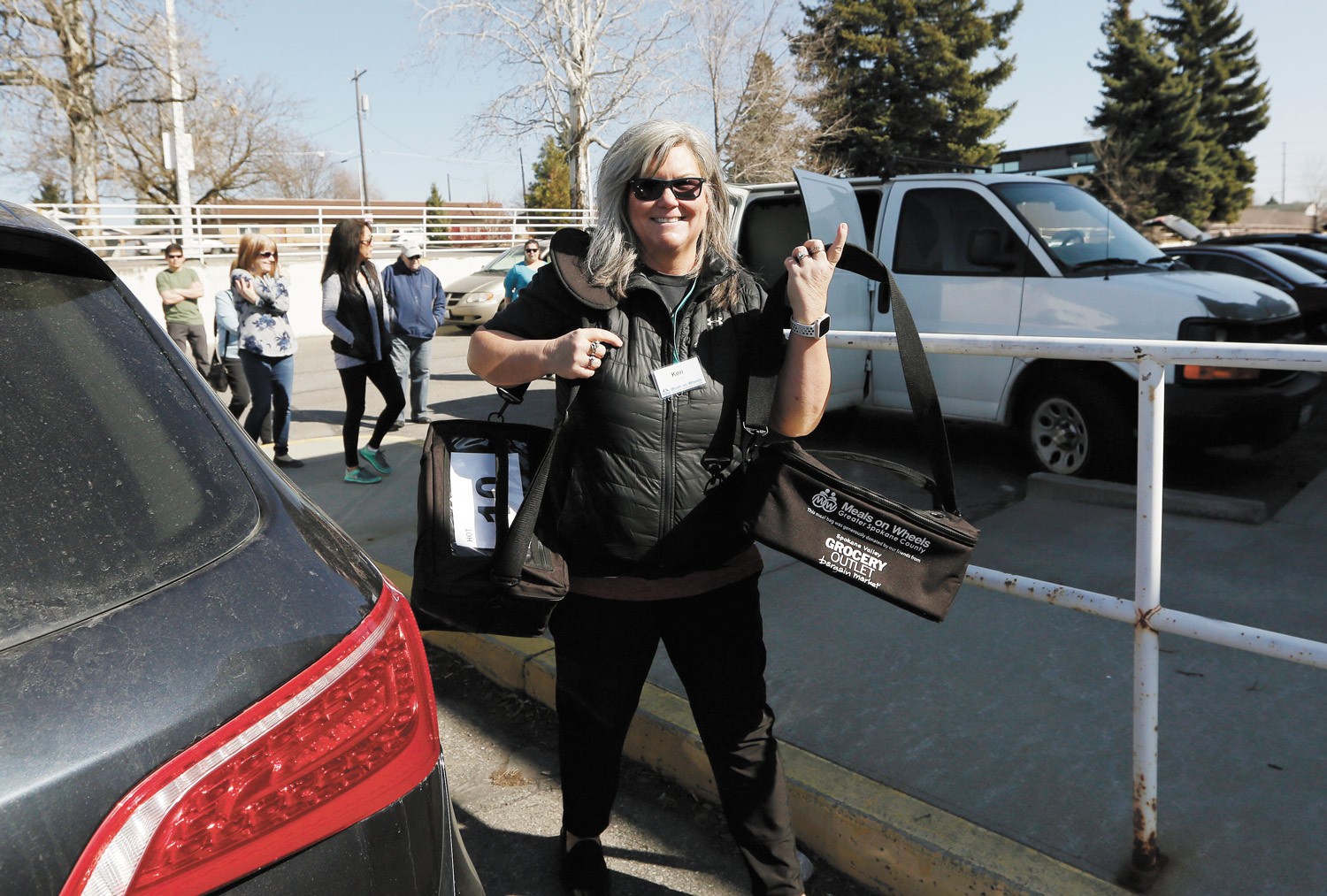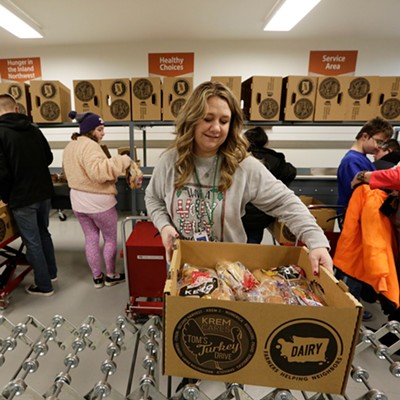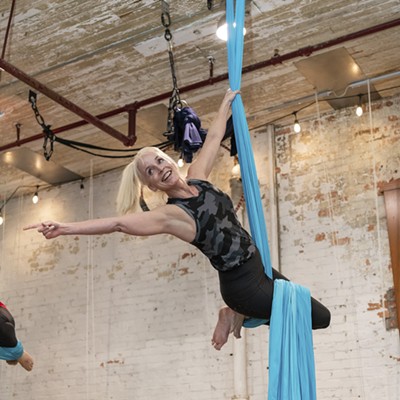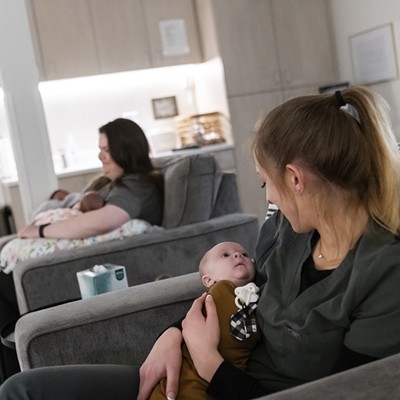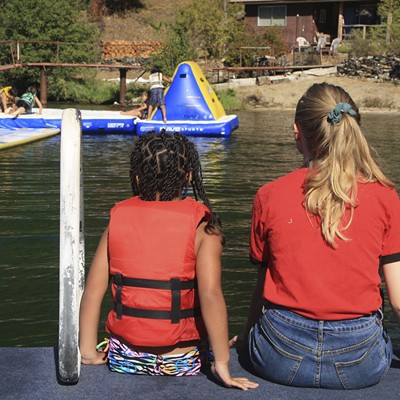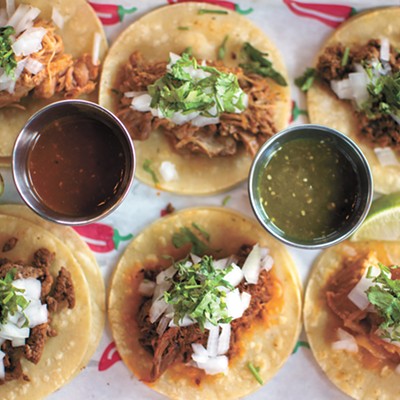For nearly 50 years, Master Gardeners programs have supported the local food system, offering training in sustainable gardening practices and serving as a resource for all things plant-related. Featured in every state, Master Gardener programs are connected to universities, which in Washington is Washington State University.
In Spokane, the Master Gardener program is also connected to the Master Gardener Foundation, a county-based nonprofit which "is basically a fundraising arm of the Master Gardener program," explains Cathi Lamoreux, past president of the Master Gardeners Foundation of Spokane County and recently elected president of the overarching Washington state foundation.
The group's annual one-day Cabin Fever symposium on March 18 will feature keynote speaker Benjamin Vogt, who speaks nationally on all-season, wildlife-friendly garden design, as well as 12 additional gardening experts on topics like native plants, irrigation and creating food forests, all delivered online. Tickets are $45.
The annual two-day Master Gardeners plant sale mostly features perennials grown in Master Gardener gardens and dug up just for the sale, Lamoreux says. There are also vegetable starts, shrubs, native plants, ornamental grasses and — new since 2022 — houseplants.
Many activities, including the plant sale, occur at the Spokane County Extension office at 222 N. Havana St., while others are part of the Master Gardeners' outreach efforts, including through collaborations with similar organizations like Inland Northwest Community Gardens.
Mary Croston serves on the board of Inland Northwest Community Gardens, whose mission includes helping create gardens for underserved populations like Spokane Housing Authority's Home Yard Cottages, which is a permanent supportive housing community for people who have a disability, are low-income and have been homeless. They also assist with the Holy Cross Nepali-Speaking Bhutanese Community Garden.
for a $25 annual donation;
visit mgfsc.org or call 509-477-2181
Master gardeners help support the organization's efforts, says Croston, especially through teaching classes on composting, season extension and more.
"They do a lot of things locally that help — people grow food, people grow plants — and just serve local agriculture," says Croston who is excited to be part of the 2023 cohort of master gardeners. ♦
MORE TO CHECK OUT
Second Harvest
More than a food bank, Second Harvest, based in Spokane, is a vast food resource center supporting food banks and related partners in 26 counties throughout Eastern Washington and North Idaho. Programs include a mobile market, a backpack program for area schoolchildren to receive food on the weekends, and community cooking classes.
"If you or someone you love needs food, we are going to do everything we can do to get it to you," says Eric Williams, Second Harvest's community partnerships director.
To donate, volunteer or find out where to get food nearby, go to 2-harvest.org or call 509-534-6678.
Meals on Wheels
This network of private, independently run nonprofit organizations enables seniors to receive nutritious food regardless of income or other factors. While Meals on Wheels Spokane primarily covers the city of Spokane, Greater Spokane County Meals on Wheels supports seniors throughout Spokane County.
In addition to delivering meals, Greater Spokane County Meals on Wheels has 13 "silver cafes" designed for "seniors who are still mobile, still active, to come eat in a group setting," according to Executive Director Jeff Edwards. "They can show up there, get a hot meal — soup and salad on a lot of days as well — and eat and socialize."
To donate, volunteer or sign up for meals: in Spokane, go to mowspokane.org or call 509-456-6597; in Spokane County, go to gscmealsonwheels.org or call 509-924-6976.
Northwest Harvest
With three statewide food distribution centers, including one in Spokane Valley, Northwest Harvest distributes food to its partners throughout Eastern Washington. But the organization doesn't just provide food. It also seeks to address the root causes of hunger and to influence public opinion and policy on issues that impact not only hunger, but also poverty and underlying inequities.
Learn about hosting a food drive or fundraising event, becoming an advocate, or making a financial donation at northwestharvest.org/ways-to-give.


